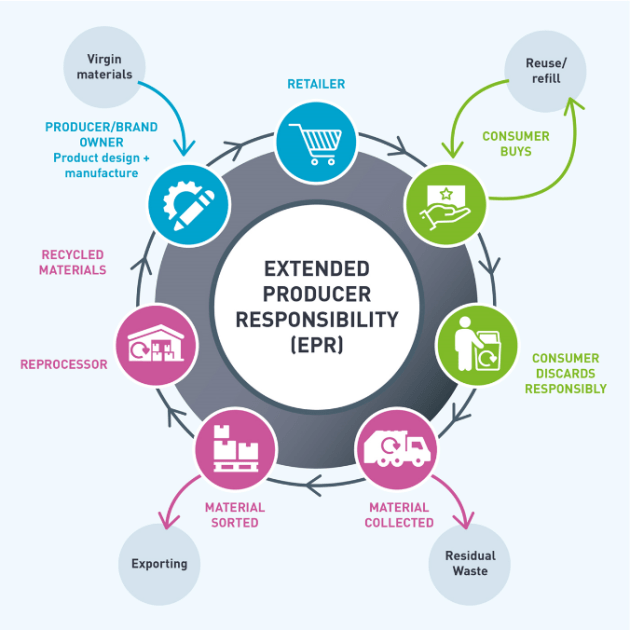Forty-five members of the World Packaging Organisation (WPO) recently came together – albeit virtually – to discuss global developments in packaging over the last six months. Nerida Kelton, AIP’s executive director and WPO VP Sustainability & Save Food, tells us more.
As a part of the Sustainability and Save Food Working Group meeting, 18 countries including the EU, Finland, Austria, Japan, Indonesia, Philippines, France, Spain, Italy, Turkey, India, Argentina, Australia and New Zealand, Kenya, USA, UK and Brazil showcased some of the key initiatives, regulatory updates and programs that are afoot in their country or region.
While the common thread across all countries is a shift towards a circular economy and the move to design out waste and pollution, every region and country naturally differs in approach.
It is encouraging to see that more governments are establishing regulations, levies and pledges to achieve circularity, reduce problematic materials and unnecessary packaging, and lower environmental impacts through circular and sustainable design.
The standout discussions focused on Extended Producer Responsibility, Eco-Modulation, Deposit Return Schemes, Plastic Pacts, Single-Use Plastic regulations, the European Green Deal, Certified Compostable Packaging and On-Pack Labelling programs.
EXTENDED PRODUCER RESPONSIBILITY (EPR)

There is a need to harmonise EPR for packaging across diverse regions, especially given the global interconnectedness of the economy and consumer packaged goods markets. There are many different approaches to the strategy, and many go beyond providing for end-of-life services to promote responsible product design, infrastructure improvements and market development. Effective EPR is often seen as a necessary piece of the puzzle in addressing the current recycling challenges and concern over single-use packaging waste.
Many WPO Member countries are following an EPR practice and policy approach whereby the physical and/or financial responsibility for end-of-life disposal rests with the producers. EPR schemes aim to encourage producers to change design at the start to ensure that the materials and packaging are truly recyclable and recovered at end of life.
ECO-MODULATION
In Europe particularly there is a move within governments and product stewardship/EPR schemes to eco-modulation – a program that penalises the producers of problematic materials and difficult to recycle packaging and provides incentives for materials that are recyclable and recoverable.
The UK Environment Bill enables eco-modulated fees, the CONAI scheme in Italy includes economic incentives and fee modulation, and Germany is looking to launch the program in 2022.
SUP REGULATIONS
Forty per cent of plastic that is produced globally is classified as ‘single use’ where it is used once and sadly discarded. Governments around the world are trying to change the trajectory by establishing single-use plastics (SUP) regulations and directives. SUP regulations and bans was certainly a hot topic on most of the WPO country reports.
The reality is that consumers no longer want to see any packaging placed on the market which is used only once and then thrown away. Key items on most of the SUP banned lists include plastics bags, cutlery, straws, plates, stirrers, cotton buds, take-away containers, coffee cups and plastic water bottles.
Spain and France are just two countries set to ban the sale of fruit and vegetables in plastic. In Spain the new regulation also contains measures to encourage the purchase of loose, unpackaged produce and purchase of non-bottled water. One of the main goals of the draft decree is to reduce by half the sale of plastic bottles for drinks by 2030, and for 100 per cent of packaging on the market to be recyclable. The ban on fruit and vegetable packaging will apply to produce weighing under 1.5 kilograms, following similar legislation in France, which will go into effect in 2022.
The WPO working group discussed the need for a more collaborative and harmonised approach for the nominated banned materials and SUP across the globe. In Europe and Australia there are differing regulations between regions and states, which presents barriers for brands who sell into multiple markets. Another concern is that alternative material and packaging choices may potentially contaminate recycling streams and may not have a lower environmental impact. A balanced science-driven approach is needed when establishing SUP regulations and requires packaging technologists, engineers and polymer scientists to be involved in the discussions.
ON-PACK LABELLING
We are seeing more countries introducing on-pack labelling programs such as How2Recycle in the USA, the Australasian Recycling Labelling program (ARL) in Australia and New Zealand, and the On-Pack Recycling Label (OPRL) program in the UK. On-pack labelling programs are evidence-based, standardised labelling systems designed to provide packaging designers and technologists and brand owners with the tools to inform responsible packaging design; and to aid consumers to correctly dispose of packaging and the separable components in the right bin.
The European Union (EU) is also working on and implementing a harmonised model for consumer sorting instructions. Europen is working with AIM (European Brands Association) and FoodDrinkEurope to develop a common position on an EU model for consumers sorting instructions for packaging waste. The objective is to establish a harmonised system in the EU that will provide consumers with understandable and clear sorting instructions for packaging waste. The instructions will improve collection rates and achieve packaging recycling targets. The practical approach is to match the product identification symbol placed on packaging, with symbols on waste bins, and bins used by waste management/operators and municipalities.
The WPO Sustainability working group discussions have shown that the world of sustainability is ever-changing, dynamic and there is so much to learn from other countries. No country has all the answers and it is clear that a collaborative approach to global discussions around circular and sustainable packaging design is paramount.
Through the WPO, members have the opportunity to learn from each other, take elements from other country initiatives and apply locally, or help guide new members establish programs for their region. The true value of the WPO is knowledge-sharing and global harmonised collaboration across the members.
This article was first published in the January-February 2022 print issue of PKN Packaging News, p14.






